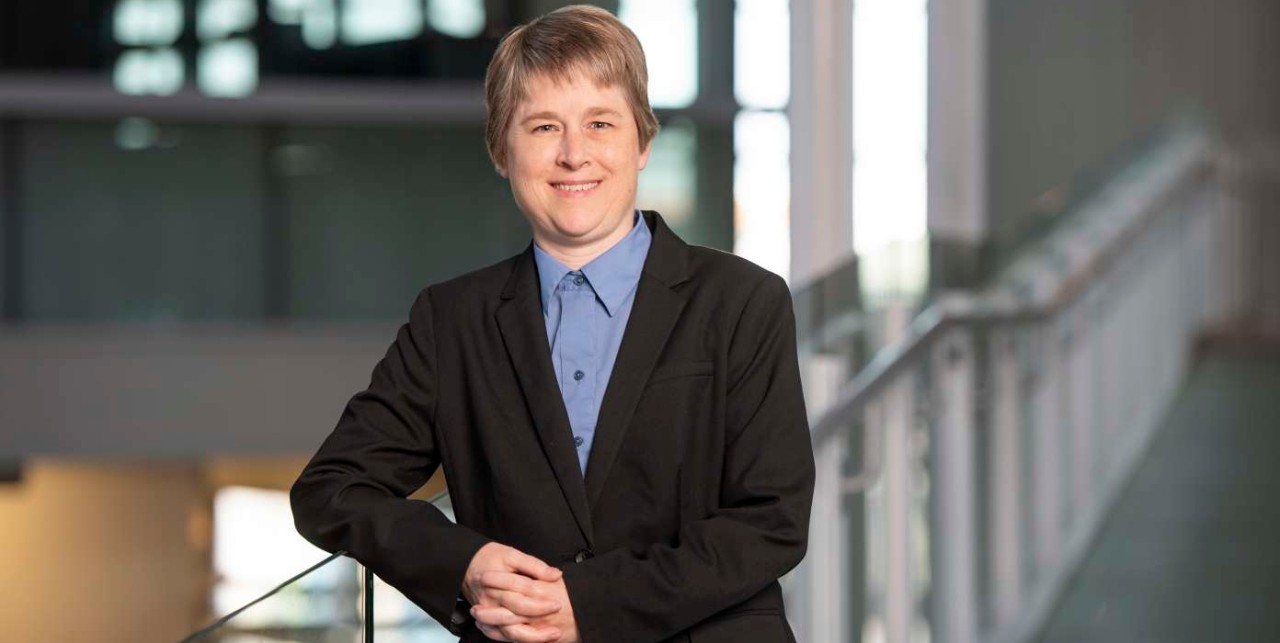
UC's opioid experts set focus on 19 Ohio counties
Principal investigators are part of the UC/UC Health Opioid Taskforce, which brings together researchers and leaders/advocates who are dedicated to having a positive impact on opioid addiction
The National Institute on Drug Abuse (NIDA) announced which counties will be randomized first to help reverse the nation’s opioid crisis.
In April, NIDA awarded a $65.9 million grant to Ohio research universities, including the University of Cincinnati, for the HEALing (Helping to End Addiction Long-term) Communities Study — an allocation of resources to reduce the number of opioid overdose deaths in the next three years.
In 2017, 4,293 Ohioans died from opioid-related overdoses, according to the Centers for Disease Control and Prevention. With that toll, Ohio experienced 39.2 opioid-related overdose deaths per 100,000 people, a rate that is second only to West Virginia.
The HEALing Communities Study will determine how to address the opioid epidemic through prevention, treatment and recovery. To assess the effectiveness of different interventions, the study will compare results between communities, and in order to make these comparisons, participating communities were randomly assigned using a scientific algorithm to start these interventions either in December 2019 (Wave 1) or December 2021 (Wave 2).
- The 10 counties in the first wave are Ashtabula, Athens, Cuyahoga, Darke, Guernsey, Greene, Hamilton, Lucas, Morrow, Scioto.
- The 9 counties in the second wave are Allen, Brown, Franklin, Huron, Jefferson, Ross, Stark, Williams and Wyandot.
Throughout the project, all participating communities will continue to get all the other treatment and prevention resources and services that they would otherwise receive.
Theresa Winhusen, UC professor of psychiatry and behavioral neuroscience, director of the Addiction Sciences Division and principal investigator of the Ohio Valley Node in the NIDA Clinical Trials Network, is serving as a co-principal investigator for the state of Ohio with Dr. Rebecca Jackson, director of the Ohio State University’s Center for Clinical and Translational Science, along with Alisha Nelson of RecoveryOhio, an initiative created by Gov. Mike DeWine. UC, Ohio State and Case Western are coordinating the research study in collaboration with the 19 counties.
“The HEALing Communities Study is critically important for its potential to address the opioid epidemic, including reducing opioid overdose deaths, through the use of interventions that, if found to be successful, can be readily disseminated to other parts of the country,” says Winhusen. “We will move forward with our partners quickly to help these counties in both waves. Only by partnering with communities can we improve the lives of those touched by the opioid epidemic, achieving a long-term solution to addiction.”

Michael Lyons, associate professor of emergency medicine, and Jennifer Brown, associate professor of psychiatry in the addiction sciences division. Photo Credit: Colleen Kelley / UC Creative Services
UC faculty members Jennifer Brown, associate professor of psychiatry in the addiction sciences division, and Dr. Michael Lyons, associate professor of emergency medicine, are leading the statewide effort of intervention implementation across the selected counties.
This project demonstrates UC’s commitment to research, urban health and innovation as outlined in its strategic direction, Next Lives Here.
Winhusen, Brown and Lyons are part of the UC/UC Health Opioid Taskforce, an entity that brings together researchers, educators, clinicians and leaders/advocates who are dedicated to having a positive impact on opioid addiction locally, regionally and nationally.
“We hope to work with these communities to implement a compendium of evidence-based interventions to address the opioid epidemic, with a primary focus on curbing the rate of opioid overdose deaths,” says Brown.
The HEALing Communities Study is funded and supported by the National Institute on Drug Abuse, part of the National Institutes of Health, in partnership with the Substance Abuse and Mental Health Services Administration.
For more information on the study, see https://heal.nih.gov/research/research-to-practice/healing-communities.
Related Stories
Before the medals: The science behind training for freezing mountain air
February 19, 2026
From freezing temperatures to thin mountain air, University of Cincinnati exercise physiologist Christopher Kotarsky, PhD, explained how cold and altitude impact Olympic performance in a recent WLWT-TV/Ch. 5 news report.
Discovery Amplified expands research, teaching support across A&S
February 19, 2026
The College of Arts & Sciences is investing in a bold new vision for research, teaching and creative activity through Discovery Amplified. This initiative was launched through the Dean’s Office in August 2024, and is expanding its role as a central hub for scholarly activity and research support within the Arts & Sciences (A&S) community. Designed to serve faculty, students, and staff, the initiative aims to strengthen research productivity, foster collaboration, and enhance teaching innovation. Discovery Amplified was created to help scholars define and pursue academic goals while increasing the reach and impact of A&S research and training programs locally and globally. The unit provides tailored guidance, connects collaborators, and supports strategic partnerships that promote innovation across disciplines.
Blood Cancer Healing Center realizes vision of comprehensive care
February 19, 2026
With the opening of research laboratories and the UC Osher Wellness Suite and Learning Kitchen, the University of Cincinnati Cancer Center’s Blood Cancer Healing Center has brought its full mission to life as a comprehensive blood cancer hub.
